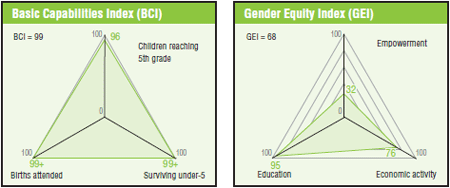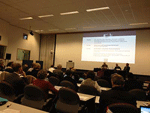Cyprus
The Impact of COVID-19 on the Achievement of the Sustainable Development Goals in Cyprus

Published on Thu, 2020-03-19 23:59
Cyprus undergoes a trade-off between urgent responses to the economic and financial crisis and its sustainable development commitments. As a member of the European Union, Cyprus should be implementing the concepts of Policy Coherence for Development (PCD) and Policy Coherence for Sustainable Development (PCSD), yet neither of these is mentioned in the country’s official Voluntary National Review, which in fact omits the whole of SDG 17 (on implementation).
|
Published on Mon, 2018-09-24 10:32
Circumstances look promising in Cyprus, where the 2013 financial crisis seems over and NGOs work together with government and parliament to implement the SDGs, as reported by Charalambos Vrasidas and Sotiris Themistokleous, from CARDET. Yet, even when progress is observed in all SDGs and planning is in place, the official review acknowledges important challenges: “High public debt, high unemployment rate, the low contribution of the agricultural sector in the GDP, under-representation of women in political and public life, the need for a sustainable consumption policy, a high percentage of non-attainment in mathematics, science and reading and the need to increase ODA.”
|
Published on Sun, 2017-10-22 08:24
The Cypriot government strongly supported the process of developing the post-2015 sustainable development agenda and has repeatedly expressed its commitment to the implementation of the Sustainable Development Goals (SDGs). However, it has yet to adopt a comprehensive policy framework for implementation of the goals in the national context, concludes the independent report contributed by the Center for the Advancement of Research & Development (CARDET), a member of the global Social Watch network. This report discusses the progress made towards a national strategic framework for the implementation of the SDGs and identifies the steps taken, the challenges and opportunities as well as the issue of budgeting. As Cyprus is a divided country looking for reunification, the SDGs could act as catalyst during the implementation of a solution to the national problem.
|
Published on Fri, 2016-07-08 22:48
Cyprus is situated in the intersection of Africa, the Middle East and Europa. However, instead of the more nuanced and fluid identity required for the country to be a truly multicultural society, public and private discourses are polarized, traditionally between Turkey and Greece and, since the banking crisis of 2015, between those defending public welfare spending and the power of labor unions and the advocates of free market neoliberalism and limited government. The 2030 Agenda risks confronting a long established inertia on the part of the Government with regard to non-binding agreements and will likely be opposed by the corporate sector, as it will be assumed that the ethical standards, like due diligence and minimization of carbon footprint, will increase their operational cost or lower the demand.
|
Published on Tue, 2013-05-14 17:18

Workshop. (Photo: CARDET).
|
The main problem with the MDGs, globally, is that the overall approach towards development they represent is quite narrow, limiting countries’ incentives to institute structural changes that would foster development.
This is particularly evident in the case of Goal 2: ‘Achieve Universal Primary Education,’ which excludes economically active people in developing countries who are in need of further education, re-skilling or vocational training. Using the case of Cyprus, we can examine how the Lifelong Learning strategy it adopted made the link between LLL and sustainable development, and ask whether the Cyprus model provides a potential model for developing countries in the post-MDG agenda.
|
Published on Mon, 2012-03-19 08:38
In terms of gender equity Cyprus lags well behind the European average, and also behind some of its closest neighbours.
|
Published on Thu, 2012-03-15 13:43

Photo: MME
|
The Mediterranean Migration Network (MMN) was officially launched during a two-day kick-off meeting in Nicosia, on March 1-2. The meeting was organized by the MMN coordinator, the research and development centre CARDET, focal point of Social Watch in Cyprus.
|
|







